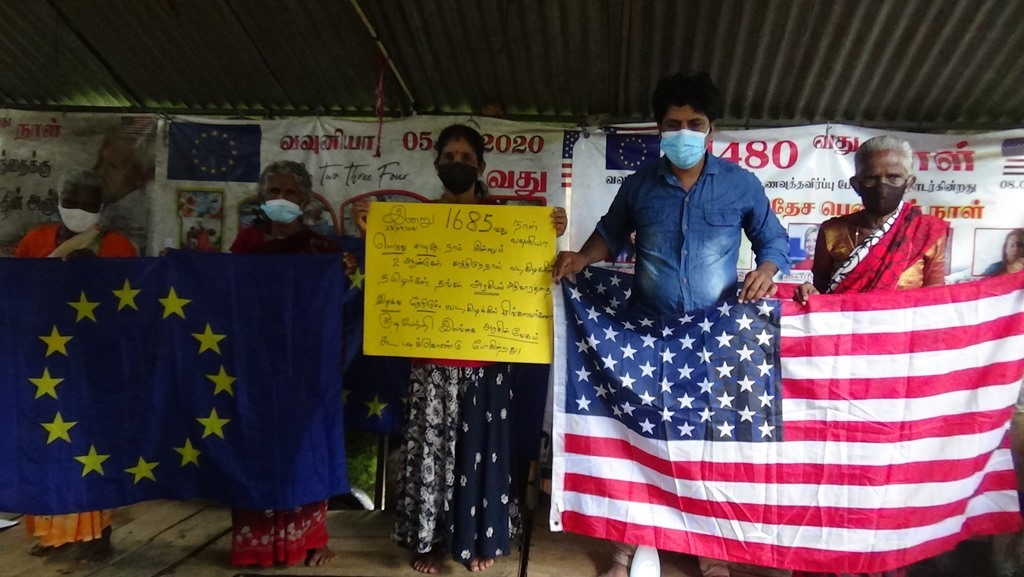File photograph - Tamil families of the disappeared in Vavuniya call on the EU to engage with the Tamil community
Sri Lanka will continue to benefit from the GSP+ Scheme until December 2027 although it continues to use the notorious Prevention of Terrorism Act (PTA).
The Daily FT reported that the EU-Sri Lanka Working Group on Trade and Economic Cooperation met with Sri Lankan authorities recently where they discussed economic and trade policy developments, regulatory and deforestation regulation.
A meeting was organised by the Department of Commerce which was held last week saw the participation of co-chair EU side Directorate General for Trade of the European Commission Director (trade relations with Africa, Caribbean, and Pacific regions, South and South-East Asia, Australia, and New Zealand, Trade and Sustainable Development, the Green Deal) Dora Correia and officials from the Sri Lanka side Ministry of Trade, Commerce.
During the meeting, Sri Lankan authorities claimed that the economy has entered into a recovery path due to intiatives introduced by the Government.
Last year, the German Ambassador to Sri Lanka and the Maldives, Holger Seubert, told a group of journalists that “Sri Lanka has several times promised to the EU and Germany that they will bring the PTA in line with international standards."
"This phase of GSP+ is coming to an end and there is a risk that Sri Lanka might lose it. Sri Lanka cannot afford to lose it at this juncture," Seubert reportedly added.
In 2010, Sri Lanka lost access to the trade concession due to its abysmal human rights record but was later reinstated in 2017 despite widespread criticism from Tamil civil society and human rights organisations.
Sri Lanka’s PTA was first introduced in 1979 and was primarily used to target Tamil youth who were arbitrarily detained, tortured, and often forcibly disappeared. The legislation which has been in place for over four decades has been primarily used against Tamils. For years Tamils have demanded the legislation be repealed.
Despite pledges by successive governments to repeal the draconian legislation, it still continues to be used.
Tamils marking Maaveerar Naal in November 2023, were arrested under the PTA as they attempted to commemorate the tens of thousands of Tamils who laid down their lives in the liberation struggle.
Meanwhile, Human Rights Watch in its dispatch released late last year reported that the EU in its assessment, found the Sri Lankan government was falling well short of the mark.The report identifies two bright spots for human rights in Sri Lanka: the “resilience” of civil society; and the 2022 Aragalaya movement in which thousands protested for good governance “in the spirit of democracy and freedom of expression and assembly.”
“Yet the report makes clear that civil society’s “resilience” is necessary in the face of government “harassment and intimidation.” Since President Ranil Wickremesinghe took office in July 2022, the government has adopted a “repressive response” to protests, arresting the movement’s leaders and employing “disproportionate use of force.”



